Regional hubs
Swedish Workplace Programme connects regionally
To ensure that the programme’s approach captures the regional context, challenges and opportunities from the stakeholders, Regional Programme Coordinators are located in four hubs in the world; Colombia, Kenya, South Africa and Vietnam. The coordinators are responsible for the programme’s regional activities and implementation.They supervise, guide and monitor external facilitators such as thematic experts and other implementing partners that will support Workplace Programmes.
In each region, the Swedish Workplace Programme (SWP) provides Sustainable Business Platforms (SBP) which serves as a stakeholder-based forum. SWP uses forums as a catalyst for companies to engage in joint strategic discussions concerning improvements, solutions and actions taken to address local sustainability and related workplace challenges. When a company partners with SWP and implement a Workplace Programme, there will be opportunities to meet peer to peer with the other partnering companies to exchange learnings and inspiration.
During the programme we will upload information, learnings and summaries of what happens in the regional hubs.
Colombia
" Multiple opportunities became available during the past years. The digital revolution penetrated most workplaces enabling us to roll-out SWP in Colombia. The response from the business community, Team Sweden and partners has been fantastic! We have partnered with several Swedish companies and we look forward to new partnerships in the years to come. Moreover, we have created a Sustainable Business Platform where we invite actors locally to analyse sustainability issues, discuss joint challenges and design solutions."
Kaveh Hagi
Programme Director Latin America

" Como colombiana, el ser presentada y luego promover la forma de trabajo sueco con enfoque horizontal, comunicaciones continuas y diálogo abierto ha sido una experiencia increíble.Durante nuestros primeros años logramos un gran progreso, y estamos actualmente colaborando con una variedad de empresas en su proceso de consolidar lugares de trabajo sostenibles. Espero expandir nuestra red de socios y continuar promoviendo el modelo sueco de diálogo, transparencia y equidad."
Maria Castilla
Regional Programme Coordinator Colombia

Kenya and South Africa
"As the pandemic resets the workplace, business leaders and unions need to rethink and be equipped to deal with the acceleration of the future world of work. Social dialogue is playing an important role in bringing forth the development of policies to protect business operations in Kenya and South Africa. This is despite the many social and economic challenges presented by the pandemic. The need for an enabling environment for constructive social dialogue was heightened, as deep inequalities and recessions in these developing economies were fully displayed. Social dialogue presented an opportunity for partners to cooperate, innovate and recreate solutions that benefitted all sides to build back better. The SWP in South Africa and Kenya contributed by building capacities on workplace cooperation. By doing so the programme contributed to union -management relations at workplace level. We look forward to implementing workplace programmes via representative committees that contribute to sustainable business and a win-win for all."
Binta Mutale
Programme Director Africa

"It has been exciting during the last years with many learnings of the Swedish model. There has been a lot of sharing and networking with the other Hubs and the global office. So far, we have initiated workplace programmes in Kenya, with a trade union and with a local Kenyan company, focused on fostering sustainable business practice and policy. I look forward to more meaningful engagements with Swedish companies and their value chains in the region. Asante sana!
Regional Programme Coordinator Kenya
"In the South African landscape, we are implementing the Programme through a number of initiatives. This included a Sustainable Business Platform (SBP) with local Swedish companies and kicking-off a union capacity-building workstream. We have spent time developing partnerships and laying the groundwork for how to make a positive impact. I am looking forward to focus on establishing workplace programmes in individual workplaces and within their supply chains, and progressing our SBPs in specific key sectors."
Sena Ramlochan
Regional Programme Coordinator South Africa

Vietnam
"In the last decades Vietnam has transformed from one of the poorest countries in the world to a lower middle-income country. The aim is to become a high-income country in 2045. Due to the US-China trade war, many manufacturing businesses relocate to Vietnam. It is really exciting to work with a country that is in such a big transformation with a fast-growing economy and a lot of optimism. With our work we want to contribute with one little piece of the puzzle to manage the growth in a sustainable way. Our aim is to promote decent work and a stable labor market by encouraging employee involvement and dialogue between managers and employees. In addition, we encourage learning and sharing between peers by creating sustainable business platforms. One example is the Sustainable sourcing network for people working with sourcing in Vietnam."
Evalena Persson
Programme Director Asia

"Since the Swedish workplace programme was established in Vietnam in the middle of 2020 we have built a valuable network with relevant companies and organisations. There is a great interest in issues related to decent work and social dialogues in Vietnam right now. Not least because of the new European Union Vietnam Free Trade Agreement (EVFTA), that includes requirements to implement the International Labour Organisation’s core conventions. Vietnam has now ratified seven of the eight conventions. The last convention to be implemented is the convention on Freedom of association and protection of the right to organize. We strongly believe that a modern organizational culture where employees are engaged and listened to is an important success factor for businesses. Swedish Workplace Programme aims to enable such a culture and I am very happy to be a part of that work."
Hien Nguyen
Regional Programme Coordinator Vietnam

Contact a Regional Programme Coordinator
If you wish to contact a Regional Programme Coordinator directly, please visit our contact page.
Contact us
Visit the page Contact
Global office
World Trade Center
Klarabergsviadukten 70
116 64 Stockholm

